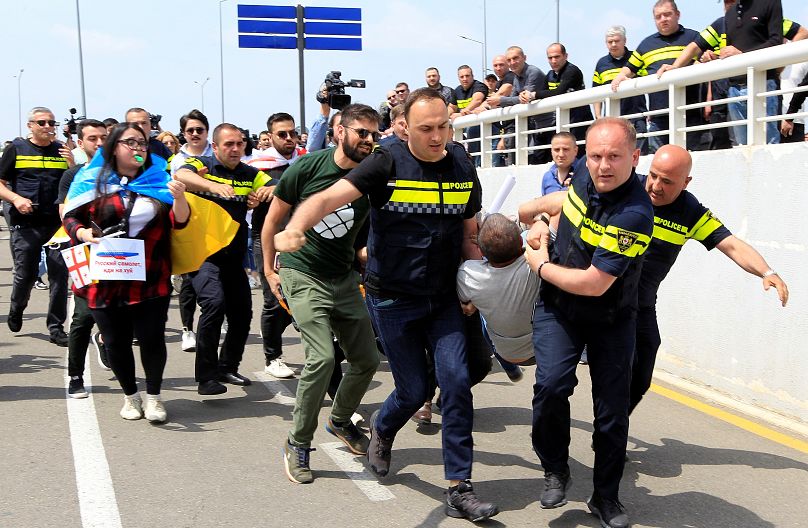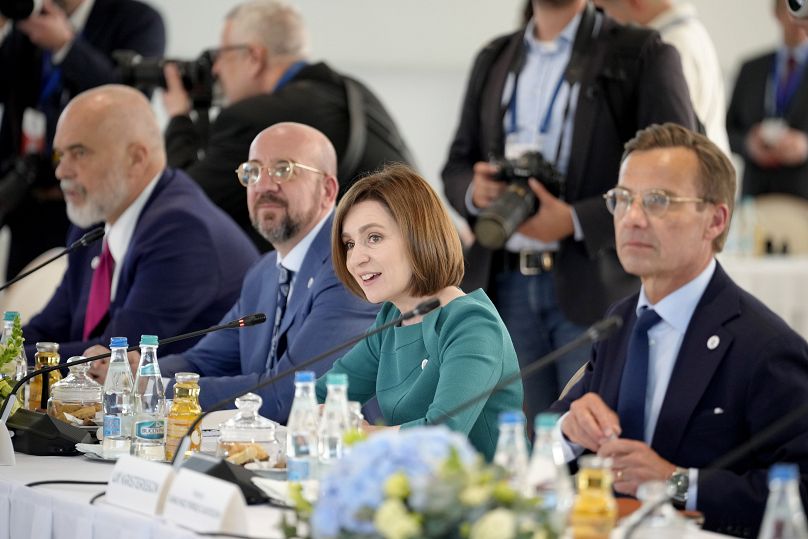Moscow's Hand: How does information warfare affect the politics of Russia's neighbours?
Since Russia's invasion of Ukraine, propaganda and disinformation have been perceived as a major threat in a number of countries. Why do these materials play such a role and even become a tool of domestic politics?
Since Russia's invasion of Ukraine, propaganda and disinformation have been perceived as a major threat in a number of countries. Why do these materials play such a role and even become a tool of domestic politics?
Information warfare is increasingly high on the political agenda of Russia's neighbours. Politicians talk about propaganda and disinformation. Analysts note that it is local political forces that are particularly active in promoting pro-Kremlin views.
A fierce internal political struggle with references to information warfare, accusations of propaganda and the use of materials that opponents believe to be Russian disinformation is unfolding in Georgia and Moldova. Both countries aspire to EU membership and are on their way to it. In both countries the Russian vector is opposed to the Western one and the government is accused of undermining the nation's European aspirations.
In Georgia this confrontation looks particularly acute due to the polarisation of the media and society", explains Dustin Gilbreath, Deputy Director of Science at the Caucasus Research Resource Centre. He draws attention to the fact that according to recent opinion polls, support for the country's European aspirations is breaking records. But anti-Western agitation is threatened by the involvement of public figures:
"When the Georgian Dream government repeats explicitly anti-Western lines, regularly insulting American officials and insulting EU officials, saying that America is trying to drag Georgia into war, few people believe these narratives, but some have come to believe them. These lines of disinformation, meanwhile, are mostly coming from people inside the country, and mostly amplified by officials of the Georgian Dream government. And this is a major problem."
According to Gilbreath, the outcome of the Russian invasion of Ukraine will play an important role for Georgia. Tbilisi is confident that this aggression is similar to the events of the Russian-Georgian war. Should Moscow win, other neighbouring countries could remain forever within the orbit of Russian influence. The Kremlin's military failures offer hope for a strengthening of sovereignty.
Russia's soft power
Moscow is trying to influence Georgian politics with soft power, not in a positive way but in a negative way, says independent journalist and political observer Razi Zhante. It means that Moscow is not trying to create a positive image of Russia but is trying to create a negative image of the Western world, saying how European values are in contradiction to traditional Georgian ones, claiming LGBT threat and playing on other forms of intolerance
At the same time, Zhante believes that no media or disinformation can already reverse the main trend in Georgia, where 80% of citizens want to join the EU, and the Kremlin understands that:
"Russia is not even trying to change Georgians minds, it's actually working in some kind of leadership. That is exactly what is happening now. Right now we really need to follow what is happening in Georgia and we will probably have turbulent, tense weeks and months ahead of us, during which the geopolitical, historical path of the country is at stake and it may come under the Russian influence."
Such a scenario, according to Jeantet, poses the threat of a further authoritarianisation of governance. Society is not ready to accept the rejection of European integration and will find itself in inevitable conflict with the authorities, which, in turn, will be ready to resort to more and more violent methods of containment of protest, relying on Russian support.
Moldovan split
Pro-Russian materials have become a major component in the political struggle in Moldova. Here politicians also complain about the propaganda in the context of the split between supporters of the European and pro-Russian vectors of development. This conflict reflects the revanchist aspirations of the former regime," Felix Hett of the Friedrich Ebert Foundation in Moldova says:
"The biggest threat, from the point of view of the current Moldovan government, is the return to power of the old kleptocratic, oligarchic and Russia-oriented political forces. And I think this is the biggest problem in the sense that they are using or are using these Russian narratives to promote their own domestic political agenda."
Hett notes that Moldovans in a polarised environment find one source of information that they trust. At the same time, official sources and the government often do not enjoy such trust, and the difficult social and economic situation exacerbates the conflict. This, according to the analyst, is the main difficulty in combating the alleged disinformation and propaganda.
In a society that has both close ties to Russia and the EU, Hett believes the focus should be on restoring trust in state institutions.
Moldovan President Maia Sandu, who has become the main voice of the country's European choice, proposes to bring the fight against Russian propaganda to the state level and create a "Centre for Patriotism" for this purpose. She has previously accused Moscow of preparing a coup and attempting to destabilize the situation in the country. Russia rejects these claims, stating that it does not interfere in the internal affairs of other states.


No comments:
Post a Comment